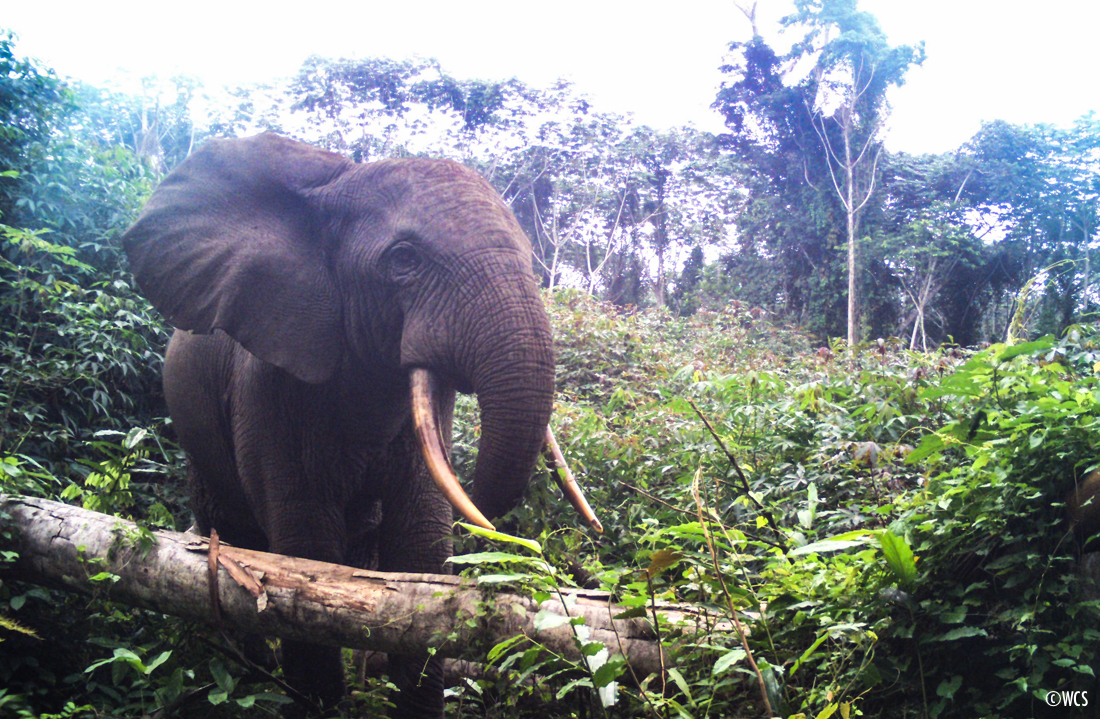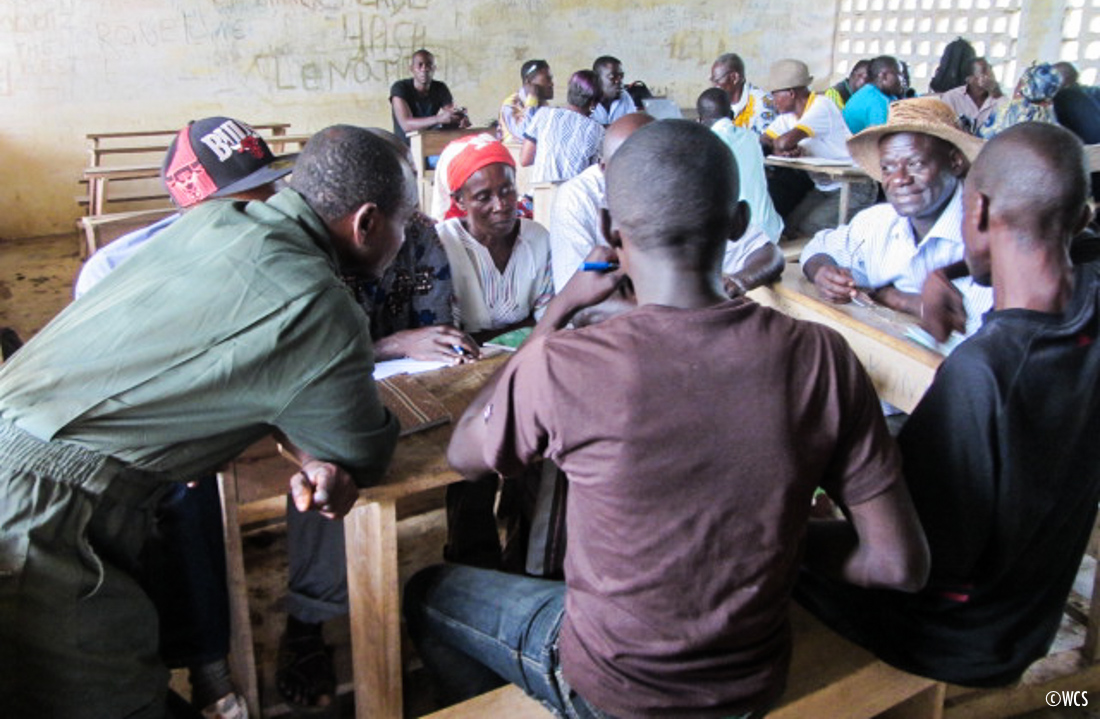
mitigating human-elephant conflict in Bambama
WCS’s community development team is working with farmers in the periphery of the proposed Ogooué Leketi National Park to reduce the impacts of elephant crop raiding. Over recent years, the communities in the district of Bambama have suffered increasingly from incidents of crop raiding. Local farmers are exasperated by the problem, and can resort to desperate measures to protect their fields, with serious consequences for the elephants.
”“When you depend on subsistence agriculture, elephant crop raiding is a serious threat to your livelihood. Helping farmers deal with elephants is an important way to build support for conservation.” - Sam Nziengui Kassa - Community Development Coordinator, Batéké Project
Over the last two years, WCS’s development team has worked with local farmers to understand the extent of the problem. In collaboration with a network of village focal points, the field team takes weekly measures of crop raiding events across a sample of fields. The results have shown the extent and patterns of raiding behaviour, which can help local farmers in the choice of field locations. We have also piloted the use of beehive fences as a potential means of protecting fields in high risk areas, and are monitoring their effectiveness.
However, protecting fields with fences is expensive. It is likely to remain beyond the means of local farmers for the foreseeable future. In response to this tricky problem the WCS team has set up a local community ‘solutions group’ to facilitate discussions between farmers on measures that can be adopted.
The group has adopted a strategy of income diversification, and has requested WCS’s support for income generating projects that are less susceptible to elephant impacts. So far WCS, supported by USAID CARPE, has helped a group of farmers in Bandoye start up a small animal husbandry project, another with the rehabilitation of a fish farm, and a group of indigenous women in Bambama to diversify their cropping practices away from those crops preferred by elephants.

There is a common perception amongst local farmers that the incidence of crop raiding has increased in the last four years, with the arrival of timber industry in the area. It is believed that logging activity in the (formerly pristine) forests beyond the river Ogooué has pushed elephants nearer to the village. One of the most significant steps to resolving this problem is therefore to secure the protection of the proposed national park.
The creation of the park is strongly supported by the local communities, who have seen their forest decimated by the loggers, but not felt any lasting benefits. If the forest refuge for the elephants is secured, it is likely that the elephants will return there and crop raiding around the villages will decline.

